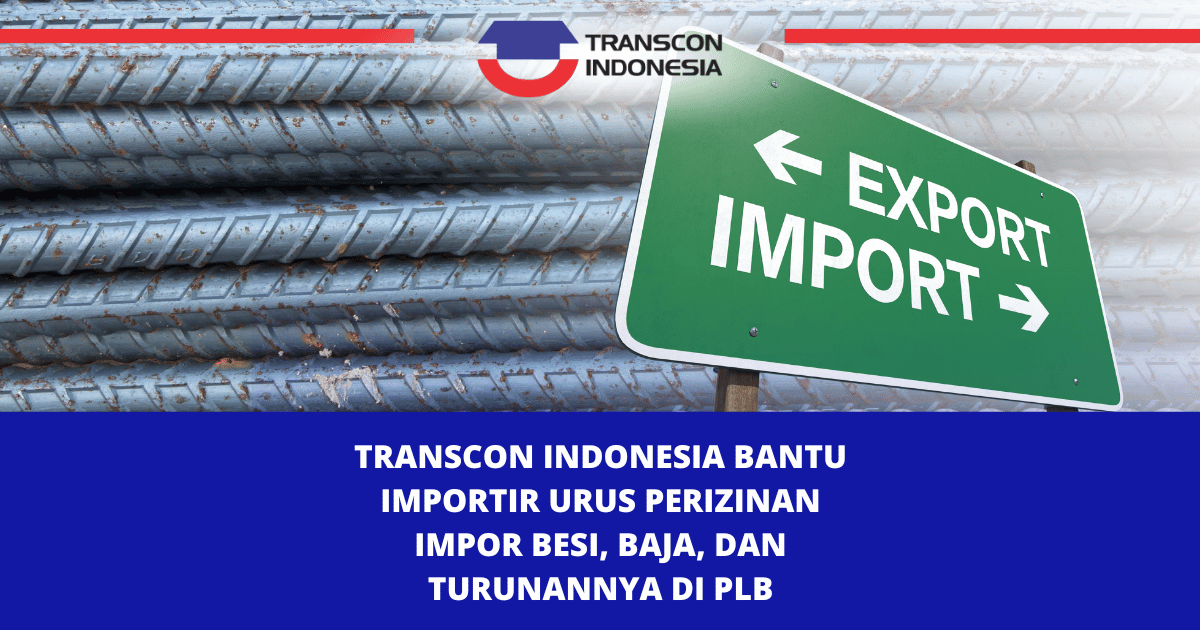With various economic dynamics occurring both at home and abroad, the government continues to update import and export policies. One of them is by making changes to various provisions such as those contained in the Minister of Trade Regulation Number 20 of 2021 concerning Import Policies and Regulations.
These changes are specifically outlined in Minister of Trade Regulation Number 25 of 2022. In consideration, the changes made are intended to keep pace with developments and changes in community needs. So, here we will discuss the impact of these regulatory changes on the import process of steel and its derivatives.
Things that need to be done before importing
Every change in regulations will definitely have an impact on the processes that occur in the field. The same thing happens in the process of importing steel and its derivatives. If you have never carried out and managed the import-export process before, this may leave you confused.
Therefore, we will summarize what things you need to prepare so that the import process can run smoothly as expected. For that, make sure you read it to the end.
- Must have NIB
This first requirement is actually not difficult to fulfill if your company is in the form of a CV or PT. You could say, this legal document is always needed in every licensing process.
You need to know that ownership of this NIB will be used as a condition for obtaining API-U and API-P. In short, API-U ownership is intended for importers who wish to import certain goods with the aim of re-trading them. Meanwhile, API-P is given to importers who import with the aim of not trading again.
- Must be Registered with Business Licensing
As an importer, you also have to fill out a business permit which is divided into three categories, namely Import Approval (PI), Registered Importer (IP), and Producer Importer (IP).
- Carrying out the Licensing Process Online
Minister of Home Affairs Regulation No. 25 of 2022 requires every importer to fulfill permits online through the Indonesia National Single Window (INSW) system. This policy has actually been around since the previous regulation.
- File Completeness
As with other permit application processes, completeness of the documents is key. If the documents you collect are incomplete, then the government will not issue an import permit. In general, the minimum files you must prepare are NIK, NPWP and NIP.
Uniquely, in the import processing process, not all goods have the same requirements. There are certain categories of goods that fall into the lartas category or prohibited or restricted goods.
Also Read: Import Policies and Regulations Minister of Trade Regulation no. 20 of 2021 jo. Minister of Trade Regulation No. 25 of 2022
Import of Steel/Derivatives Through PLB
If we look back, actually supervision of the import process of iron and steel and its derivatives through the Bonded Logistics Center (PLB) has been in effect since 2018. Of course, at that time the Government, through the Ministry of Trade, also made changes through statutory regulations.
In the attachment to Regulation of the Minister of Trade Number 25 of 2022, it is explained that the requirements for carrying out Import Licensing (PI) for iron or steel and their derivative products, importers can use API-P and API-U. Below we summarize what requirements are needed.
- PI iron or steel and its derivatives in the API-P category. To carry out the import process in the API-P category, you need to prepare the following files:
- Technical considerations from the Ministry in the industrial sector
- Mill Test Certificate for imported alloy steel
- Statement letter of suitability of raw materials/auxiliary materials
- PI iron or steel and its derivatives API-U category
Meanwhile, to carry out the import process with the API-U category, you need to prepare the following files:
- Technical considerations from the Ministry in the industrial sector
- Mill Test Certificate for imported alloy steel
- Sales contract or proof of order for alloy steel, iron and steel
The regulation also states the requirements needed if you want to make changes and extensions to your Import Permit (PI).
